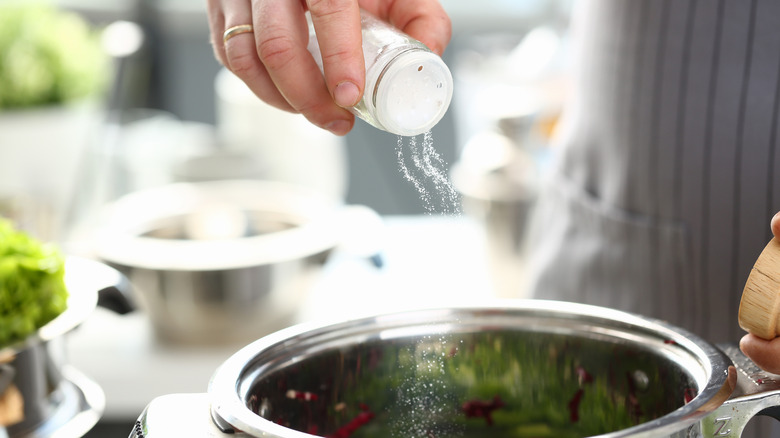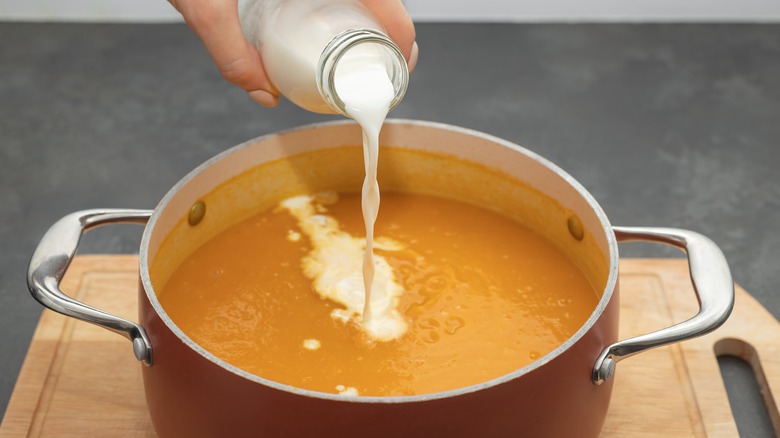Here's How To Fix An Overly Salty Soup
We may receive a commission on purchases made from links.
You put your heart and soul into making a great soup, with hours spent prepping farm fresh vegetables and simmering homemade chicken stock. Maybe you even went so far as to hand roll your own meatballs for a proper Italian wedding soup only to taste it and find that you overdid it on the salt. Though devastating, it's a common enough error, especially when dealing with a huge vat of liquid where you don't want any of it to be under-seasoned. So what's your next move?
The quickest and easiest way to un-saltify overly salty soup is to simply add more liquid in the form of water or broth. If you're adding broth, remember that store-bought products tend to be quite high in sodium, so you'll want to reach for either low-sodium or salt-free broth. If you don't have either on hand, water works just fine. To avoid a bland taste, make sure not to add too much at one time. Give your soup a stir, and taste between each addition.
Other clever ways to fix soup that is too salty
If adding water or broth to your soup makes you cringe a little at the prospect of losing all the flavor you've developed, there are definitely other options that will add not only flavor, but also different textures. First up is to add a touch of dairy – cream, half-and-half, plain yogurt, sour cream, or whole milk all work here. The fat in the dairy can help mask the saltiness of the broth, while creating a slightly thicker consistency and a richer flavor.
You can also add some sort of starch, such as rice, potatoes, or a spoonable noodle — like this La Molisana pasta anellini – to help absorb some of the saltiness of the soup. It will also bulk up your broth, and turn that soup into quite a meal – just make sure you have enough room in your pot. You can also drop a whole, peeled potato into the pot, let it simmer for about half an hour to trap some salt, and then discard it. This trick works in cases where your finished soup doesn't need anything starchy.
How to prevent overly salty soup in the first place
What's done is done, and hopefully our hacks have helped you reduce the saltiness of your soup after the fact. But where did you go wrong, and how can you avoid it in the future? First, sample your soup as you add in seasonings, and incorporate salt gradually. You can taste for yourself when there's too little salt (or just the right amount) — this gives you the chance to balance the overall flavors of the dish as you go.
You might also not know this, but table salt is actually twice as salty as kosher salt, so be aware if you're using the former that you can easily take your soup from perfect, to saltier-than-the-ocean with a careless toss of your seasoning hand. Again, this is why it's important to taste as you go. Additionally, many go-to soup ingredients also contain a decent amount of sodium. Broth is one, but there can also be a lot of salt in canned beans, tinned tomatoes, processed or cured meats, cheese, and seasoning blends. Be mindful of the saltiness of these ingredients before you reach for the shaker.


